
This article is more than
3 year oldThe new, U-shaped compound sits near the centre of the city. On its roof, the red, white and blue star of the Russian army can be seen, with letters reading "Russian army, for the people of Mariupol".
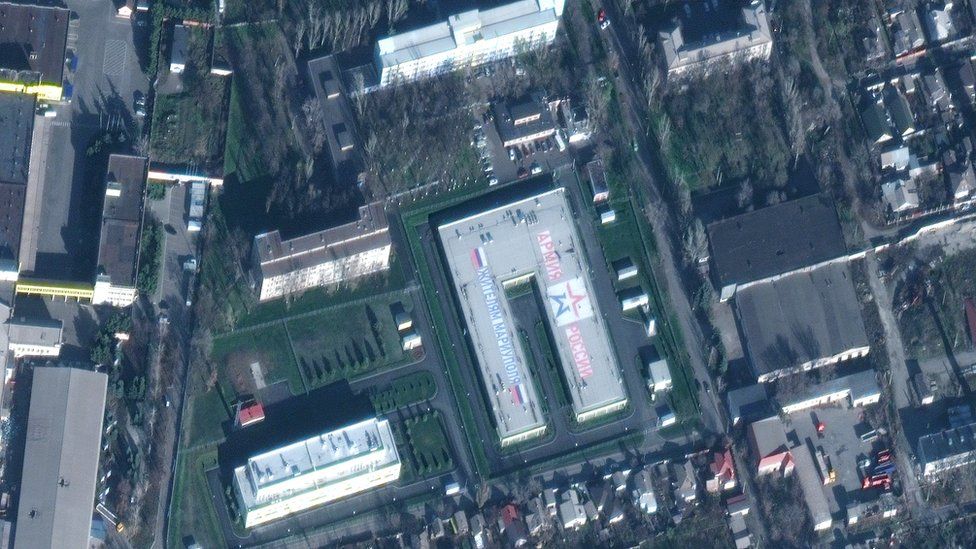
Moscow's forces laid siege to the city for almost three months earlier this year, and constant artillery barrages left much of it in ruins.
Ukrainian officials estimated last month that some 25,000 civilians were killed in the strikes, while the UN said it had confirmed the deaths of 1,348 civilians, but said the true death toll was "likely thousands higher".
Images of the city's graveyard appear to show it being extended. Russian troops have reportedly been removing dead bodies from destroyed buildings in recent months and taking them away for burial. Last month, an analysis of images obtained by BBC Panorama suggested 1,500 new graves have been dug at the cemetery.
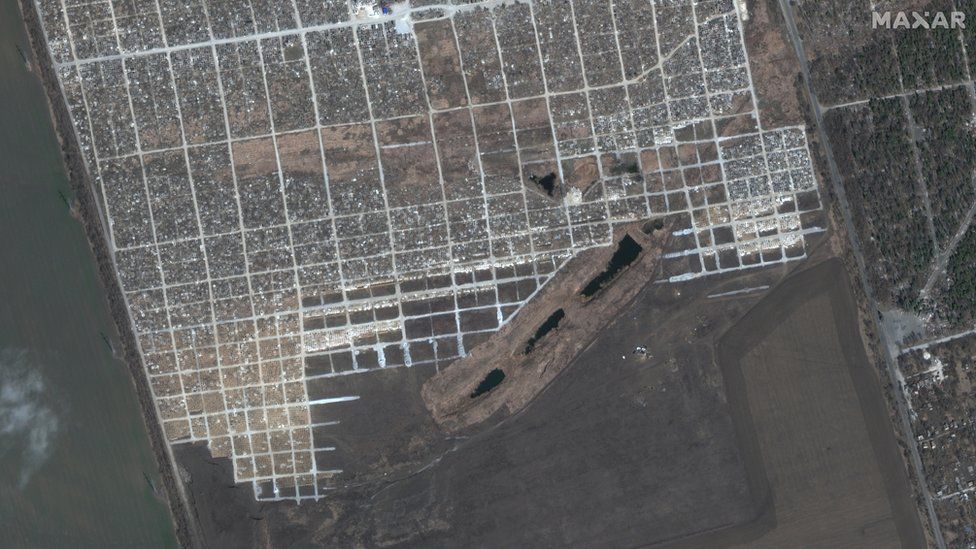
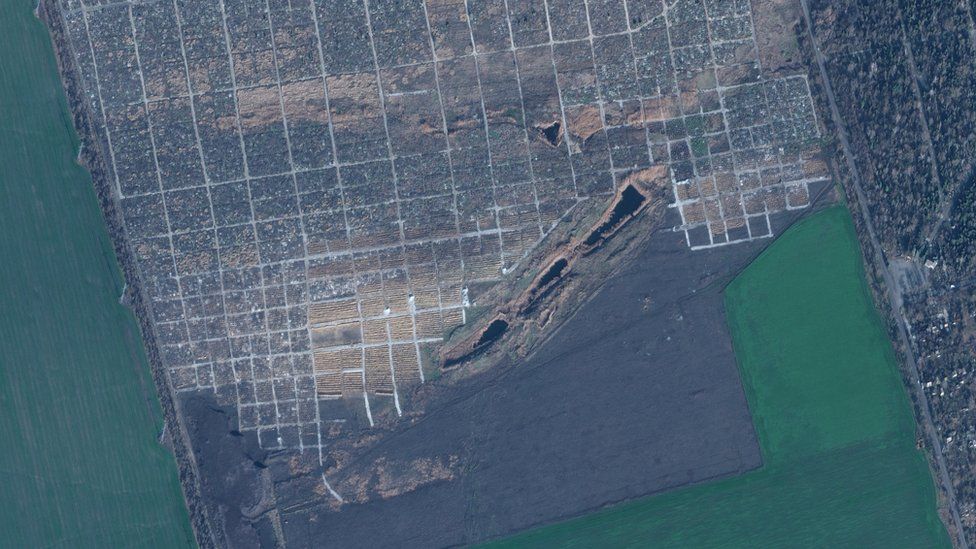
A large protective screen has also been erected around the remains of the city's theatre, where hundreds of people are believed to have died after Russian forces targeted it in a missile strike on 18 March. The attack - which Amnesty International called "clear war crime" by Russia - left the site in ruins.
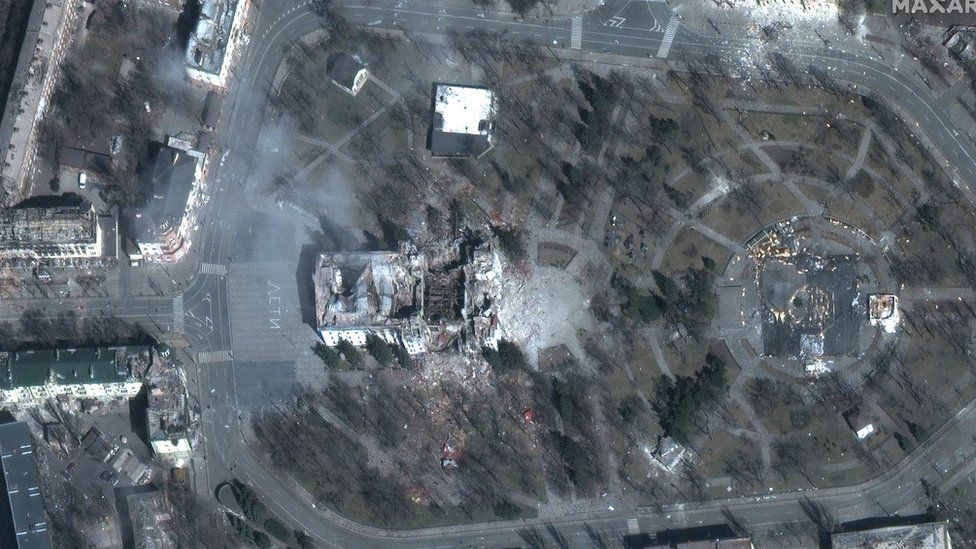
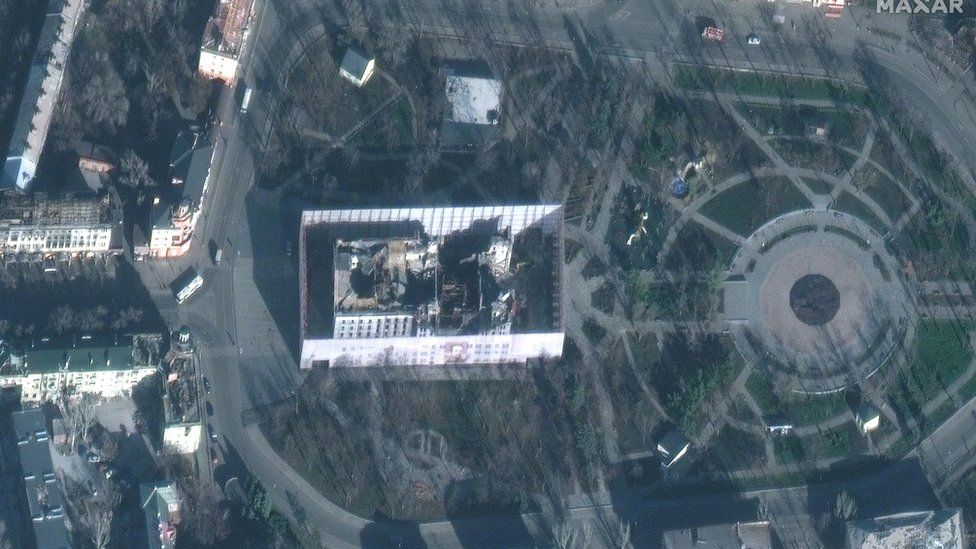
Ukrainian officials estimate that up to 90% of the city's infrastructure was left in ruins by the Russian bombardment, and the new images suggest that Moscow has started to demolish many of the residential buildings that were left beyond repair.
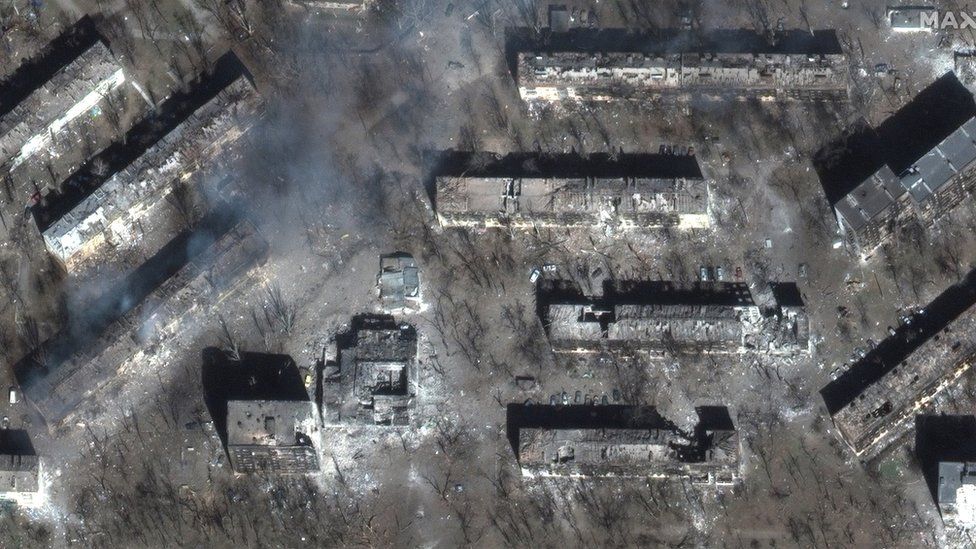
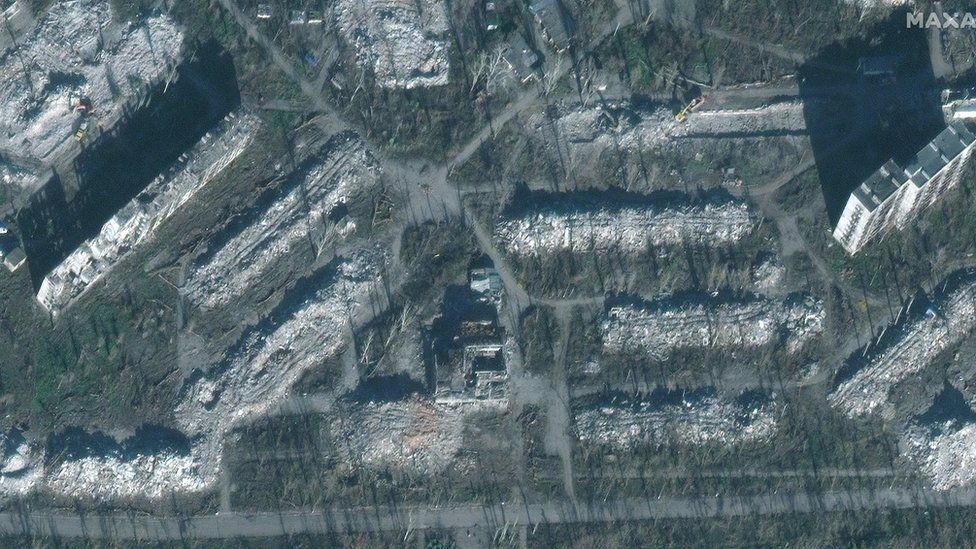
Other images show huge amounts of building supplies at the city metro station. During the Russian bombardment of Mariupol, many civilians could be seen waiting outside the station for food and other necessities.
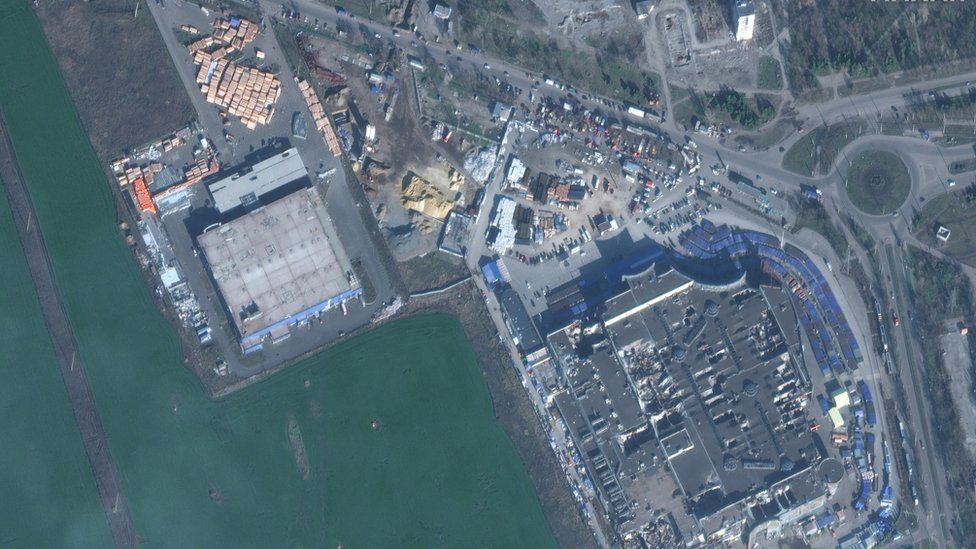
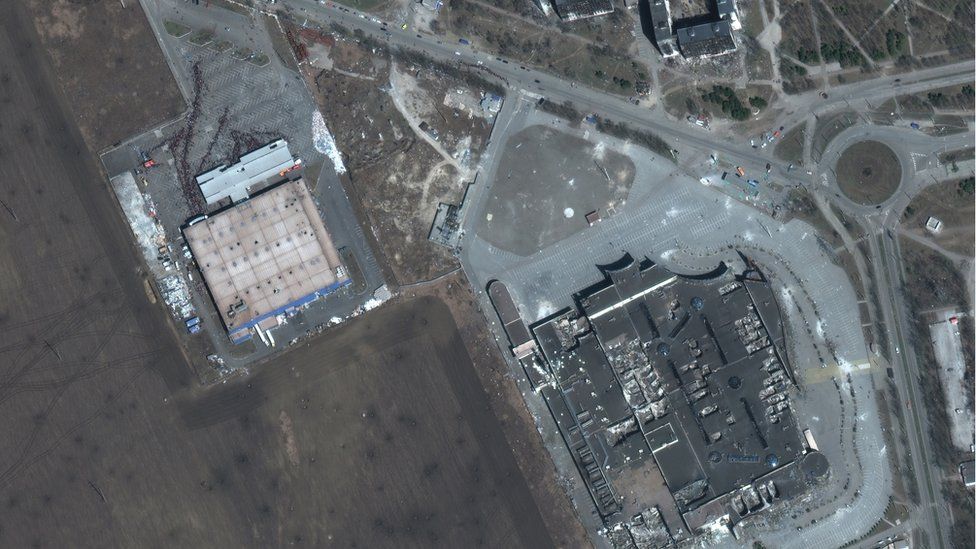
The images come amid reports that Russia is slowly building up its defensive positions in Mariupol, as Ukrainian counteroffensives in the south and east increasingly put the city under threat.
Last month, UK defence officials said the Russian military was using two plants in occupied Mariupol to produce large numbers of "dragon's teeth" - concrete blocks designed to slow advancing enemy armour and other vehicles.
The city is strategically important for Russia, forming part of its "land bridge" linking Russia to annexed Crimea.
All images subject to copyright.